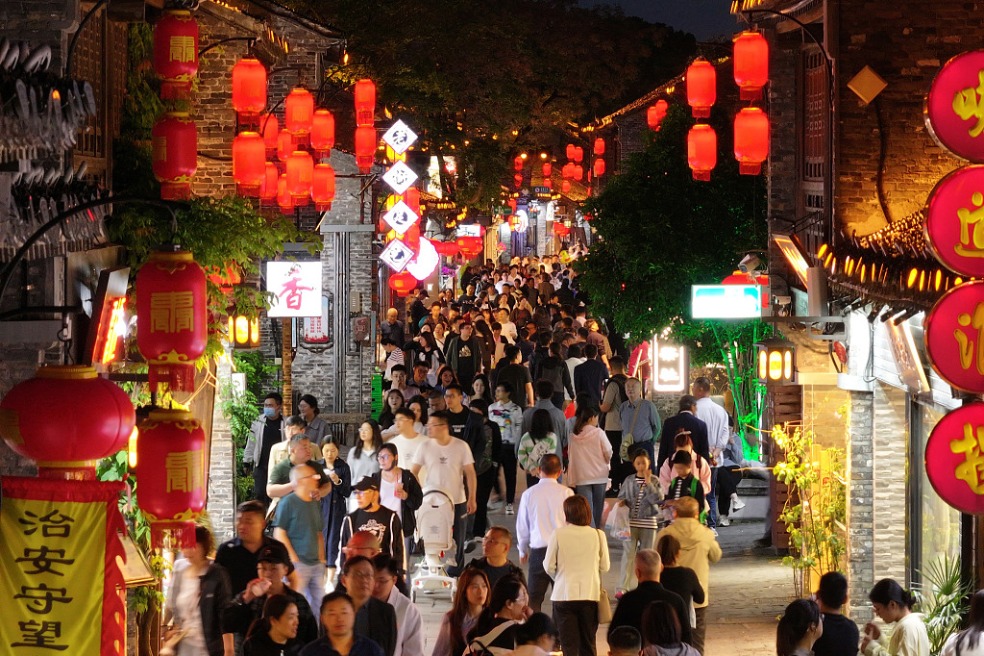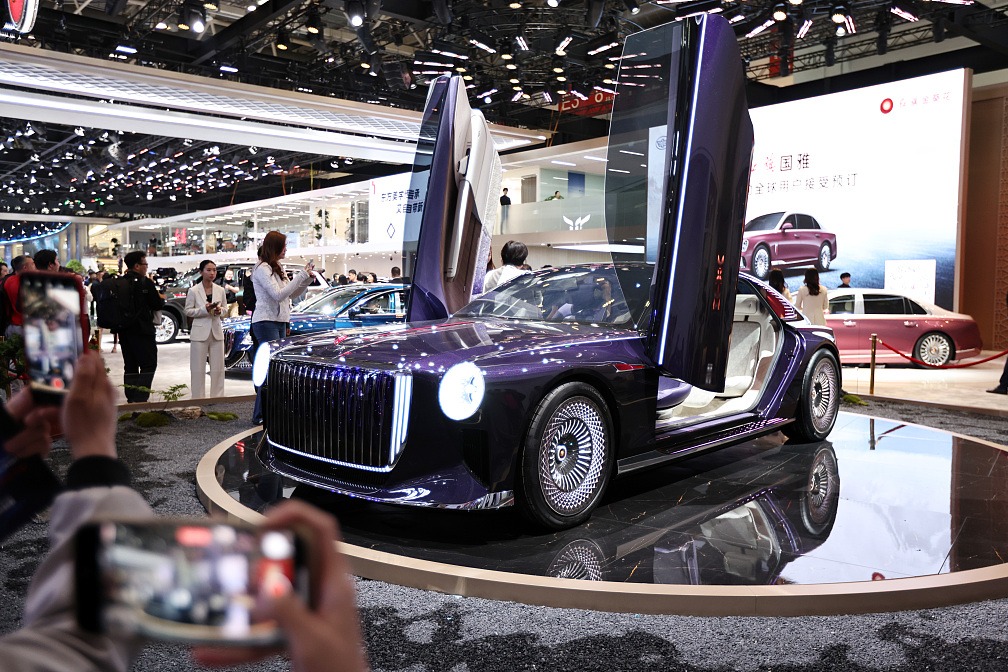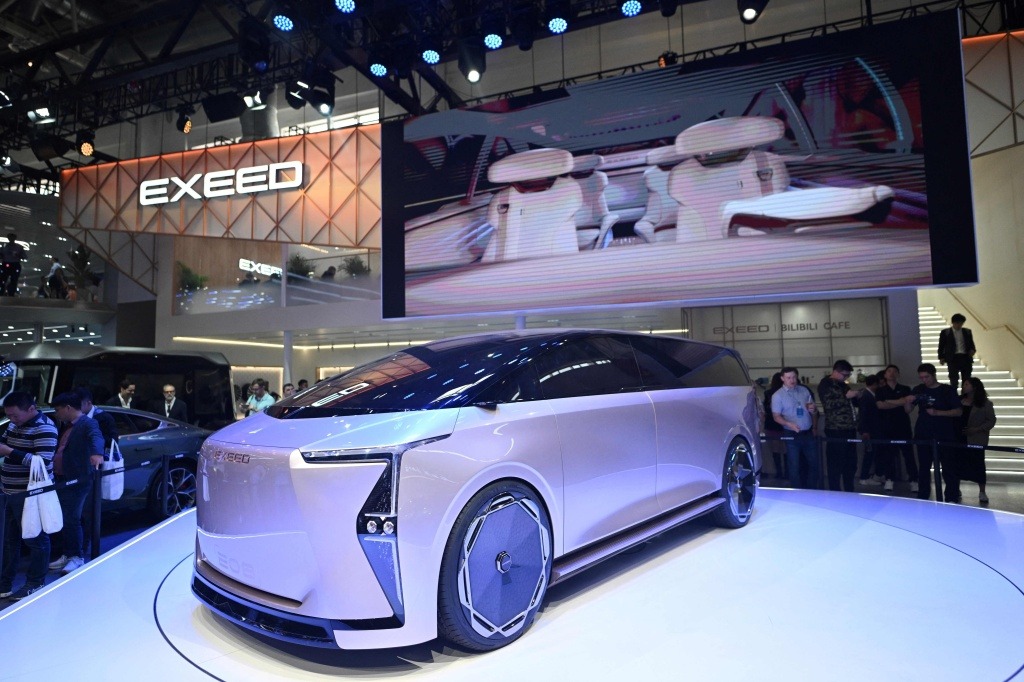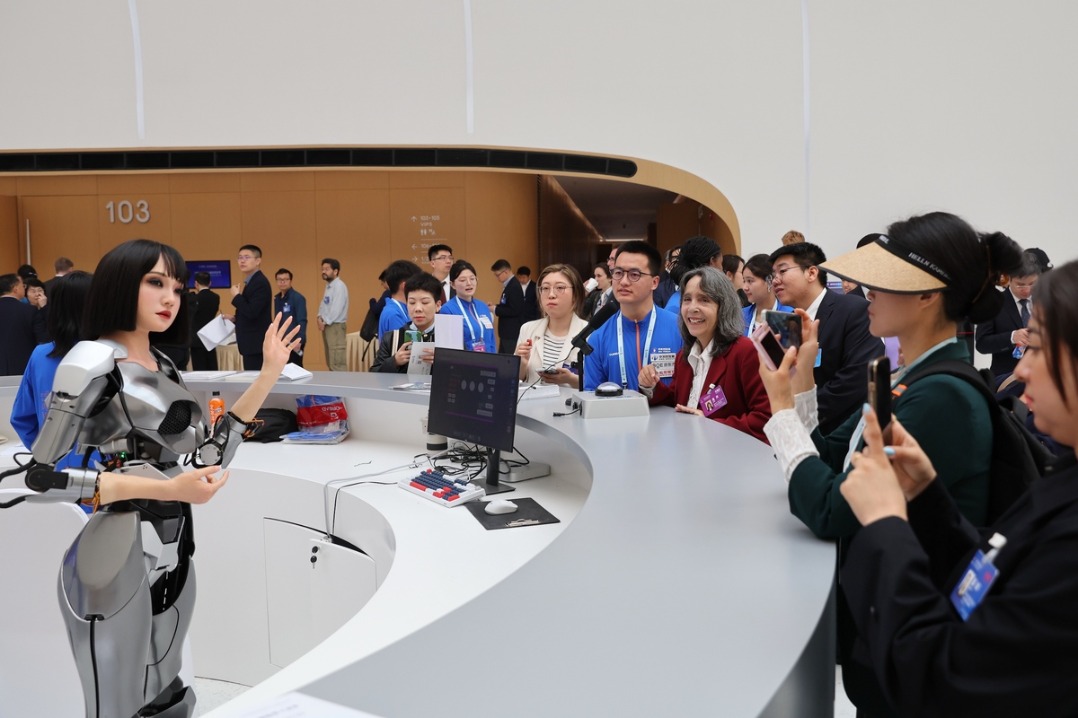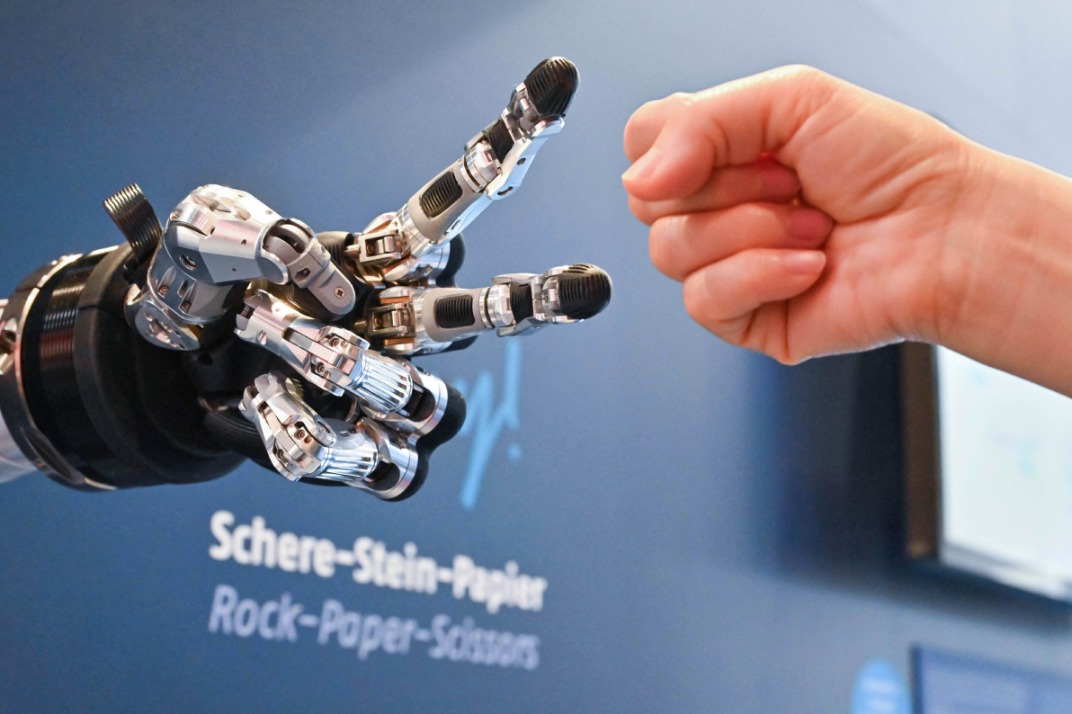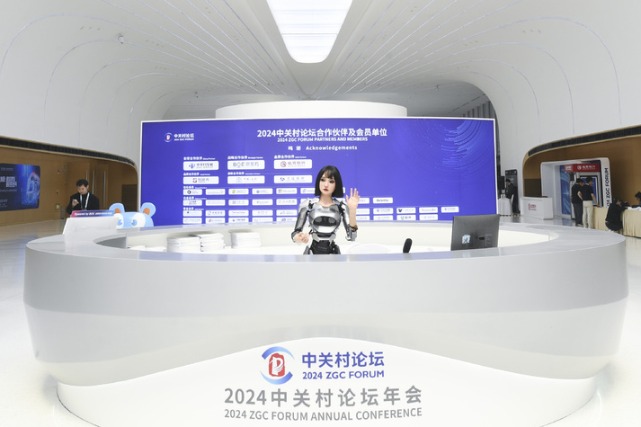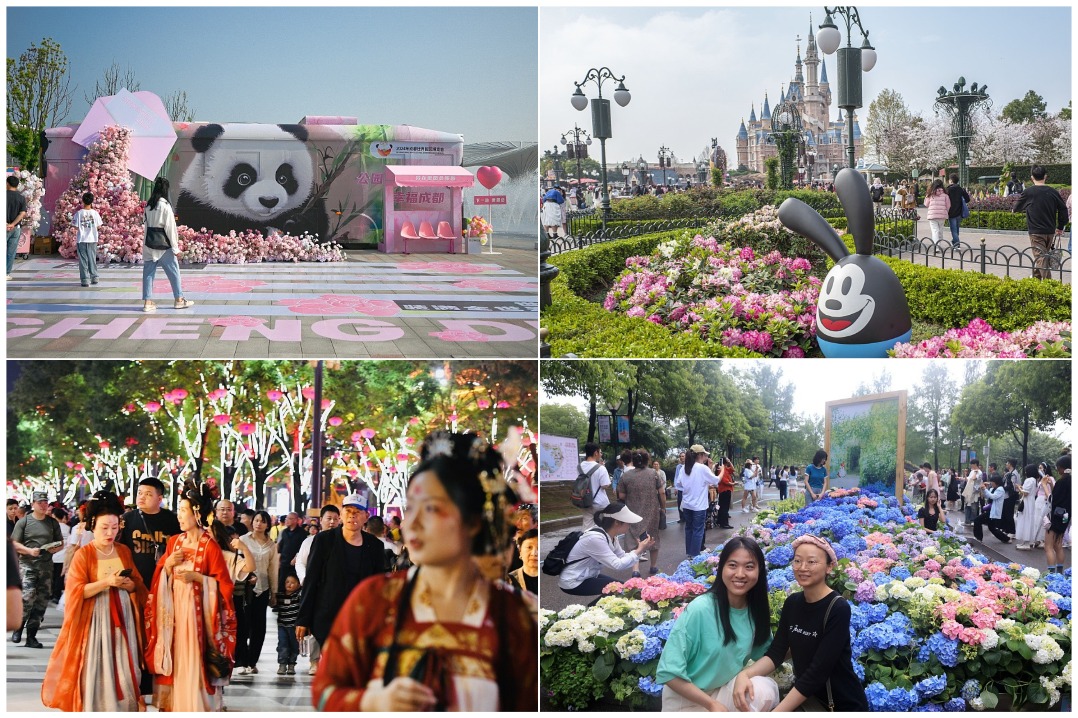Overcapacity allegation debunked
NDRC says green industries in 'surge' phase that is part of market life cycle

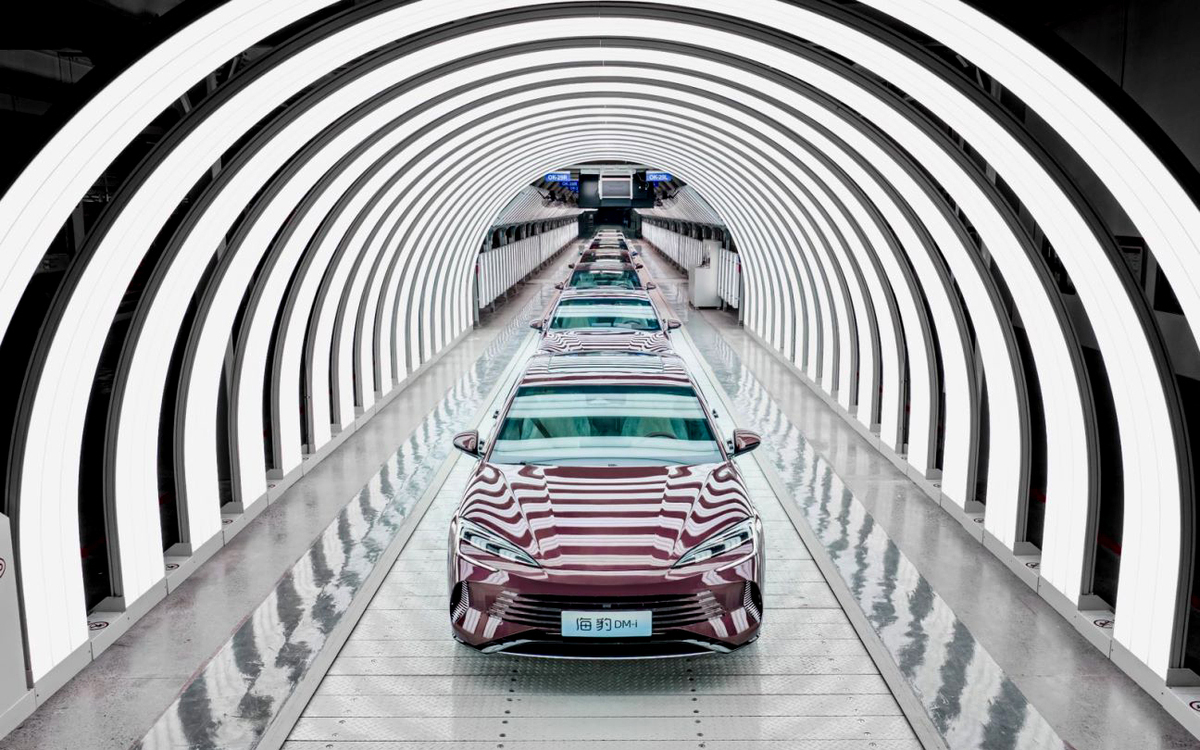
The rapid development of China's green industries has made a significant contribution to the global fight against climate change by accelerating the green transition of the automobile industry, providing affordable green energy and promoting green technology cooperation, officials, executives and experts said.
The allegation that China's green industries are hammering global industrial chains with "overcapacity" — a situation where there is too much production capacity relative to demand — is not only flawed and unfair but likely fabricated for selfish purposes, they said.
"Equating supply-demand relationship fluctuations with 'overcapacity' is a fundamental misunderstanding of how a market economy works," the National Development and Reform Commission said in a column published on Tuesday.
The comments came amid claims of overcapacity put forth by some nations after US Treasury Secretary Janet Yellen's trip to China early last month. She said China is flooding global markets with cheap goods, particularly in new green industries.
From the perspective of the industrial life cycle, emerging industries often see a surge in investment and capacity expansion as companies vie for market share, the NDRC said, describing this as the "surge" phase, where capacity might temporarily exceed demand.
"As market demand continues to grow and the industry matures, competitive enterprises and superior capacities will excel while less advanced ones will exit the market, sending the supply-demand relationship to automatically resume a dynamic equilibrium," it said.
The NDRC said that simply labeling the phenomenon as "overcapacity" overlooks both the dominant role of market mechanisms in adjusting supply and demand and the general laws of an industry's development.
"If experts in the economic field are promoting such views, it might suggest an intentional effort to confuse and distort facts for unspeakable motives," it said.
Timothy Moe, Goldman Sachs' chief Asia-Pacific regional equity strategist and co-head of macro research in Asia, said it is unfair to blame Chinese government support as the sole reason behind the current disputes surrounding overcapacity.
The world needs to understand the causes of the issue better, he added.
Christian Mumenthaler, chief executive officer of Swiss Re Group, a global leader in reinsurance, said China's progress in green transition not only presents Swiss Re with new business opportunities, but also helps the world deal with the serious threat of climate change in a better way.
China has the necessary technology and decisiveness to accelerate its green transition, Mumenthaler said. This positions the country to potentially lead in the production of vital green products like green steel and green aluminum, which are in growing demand worldwide.
The NDRC also said that China has exported renewable energy products — such as lithium batteries and photovoltaic products — to over 200 countries and regions, helping developing countries access clean, reliable and affordable energy and facilitating the global green and low-carbon transition.
It added that the robust growth of China's new energy vehicle industry has met the global demand for quality products and promoted technology collaborations in that field, strongly supporting the transformation of the global automotive industry.
Volkswagen, Mercedes-Benz and other international automakers have established global research and development centers in China. Volkswagen joined hands with Chinese electric vehicle maker XPeng last month in developing electrical/electronic architecture to improve its competitive edge in China's EV market.
Guo Kai, executive president of the CF40 Institute — a research institute affiliated with the China Finance 40 Forum, a top think tank- said the United States' allegation that Chinese "overcapacity" is damaging US employment is flawed because the analyses fail to account for the jobs created through trade with China.
The primary cause of the decline in US manufacturing employment is not Chinese exports but increased productivity and the adoption of automation in the US, he said.
However, to cope with intensified global trade protectionism, Guo said China should further bolster domestic demand and shift some exports toward direct overseas investments that can help boost local employment more significantly.
Contact the writers at zhoulanxv@chinadaily.com.cn
















